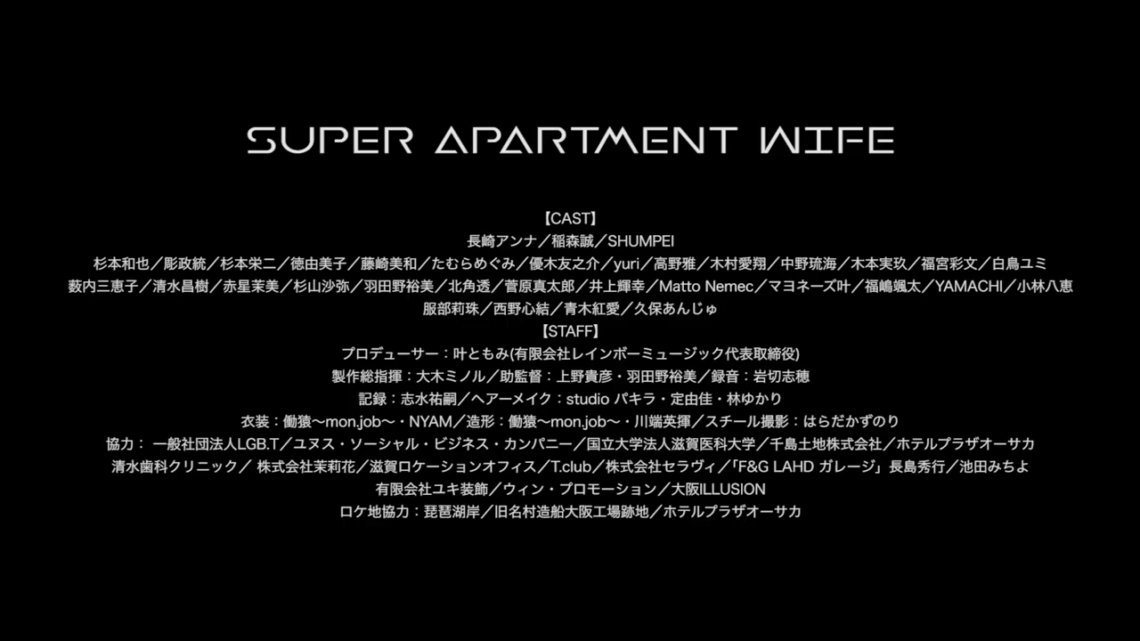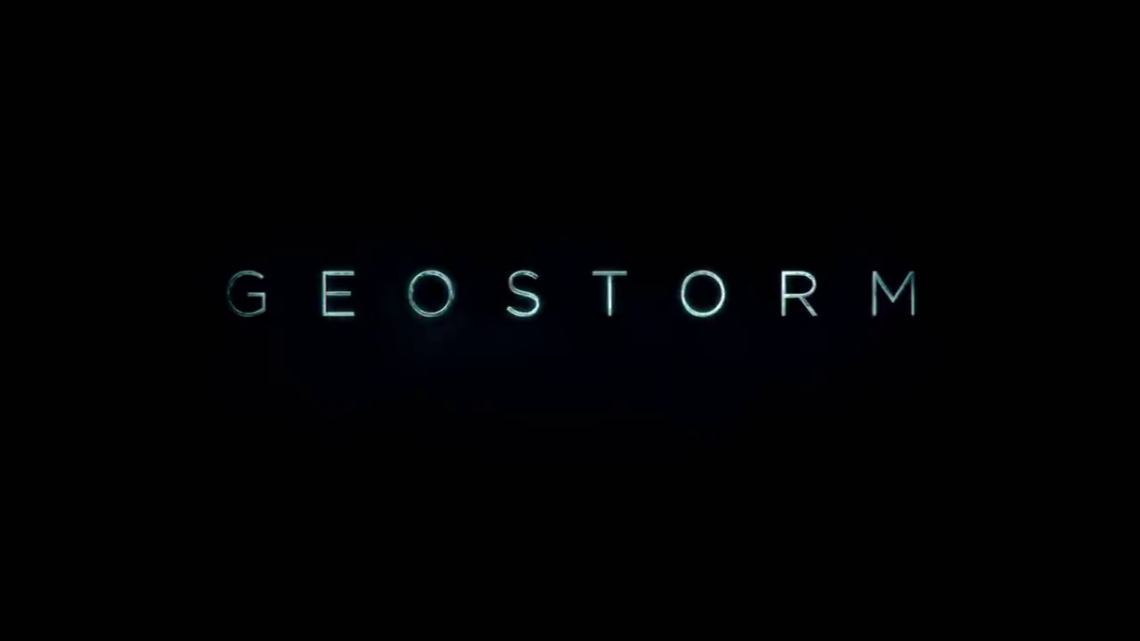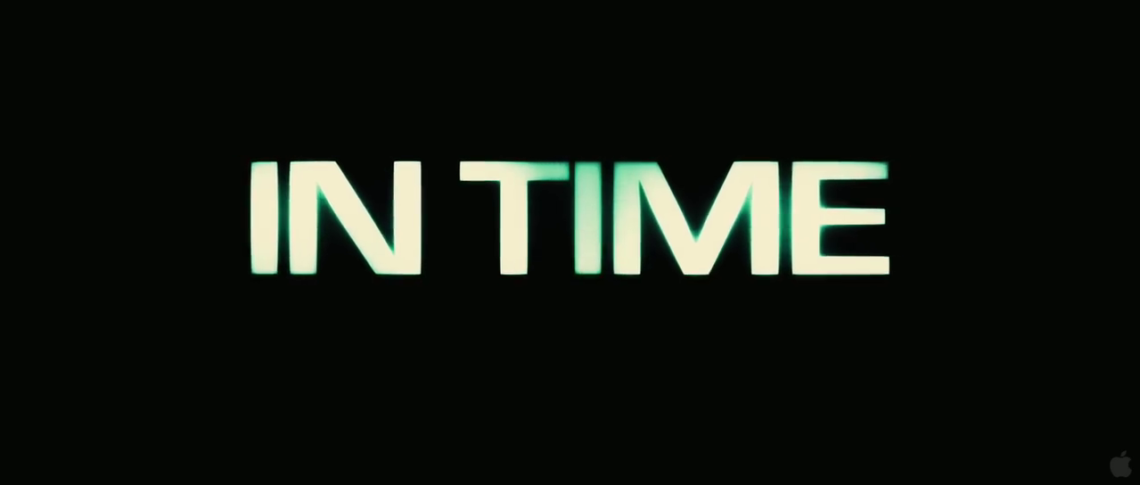-
#604 – Sharktopus (2010)










Sharktopus (2010)
Film review #604
Director: Declan O’Brien
SYNOPSIS: A top secret experiment that created a shark-octopus hybrid has lost control of the subject, as it goes on a rampage across the coast hunting down beachgoers. It’s creators try to get it back under control as the ‘sharktopus’ continues its hunt.
THOUGHTS/ANALYSIS: Sharktopus is a 2010 shark TV movie. A top secret government project has developed a shark-octopus hybrid, codenamed S-11, and for some reason it is allowed to wander the ocean because the team can control it thanks to a control unit attached to it. When the control unit unsurprisingly breaks, the team must regain control of the creature and hunt it down as its rampage continues. Even with the ridiculous twist of a shark-clone hybrid, the film is nothing more than a typical shark film. In fact, that doesn’t seem to be it’s main focus either: the film is more interested in showing off women in bikinis, as this seems to be the focus of every shot, rather than anything else that is happening. You expect a bit of that in these films, but it is near constant here. The main plot barely has anything to it: the hunting of the sharktopus is interspersed with another plot thread about reporters, and another radio DJ, but these are pointless distractions that serve only to pad out the runtime as the main story is so lacking. Add to this the sheer predictability of all the setups and kills, and you’ve got a whole lot of nothing to hook you.
The characters are all a pretty unlikable bunch: Eric Roberts is the only noteworthy actor attached to this, and he’s playing the character he always is. The rest of the characters are as mentioned abrasive and unlikable or bland tropes not worth remembering. The sharktopus itself is a CG monster that looks pretty terrible, and doesn’t look real in any way. A lot of the scenes are also clearly not on location, as the green screening reveals itself quite easily. I suppose on a positive note the kill count for the sharktopus is pretty high, and fairly constant, but really there’s not a whole lot to write home about in Sharktopus: it doesn’t utilise its novel concept, it lacks any kind of depth in terms of story or characters, and it’s sole interest seems to be to just film women in bikinis without any attempt to hide it. Another one in the pile of low budget shark films.
-
#603 – Super Apartment Wife (2021)

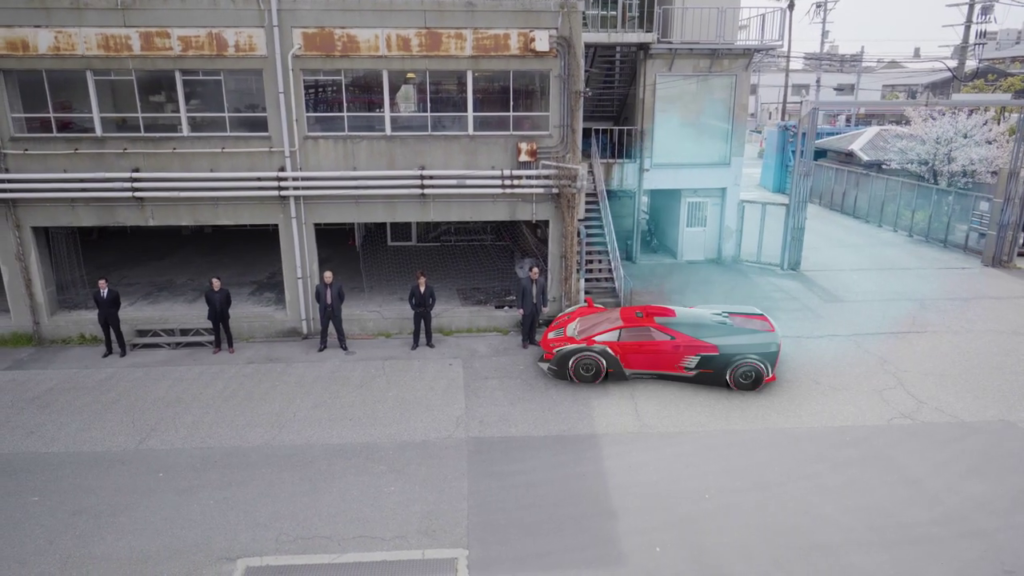

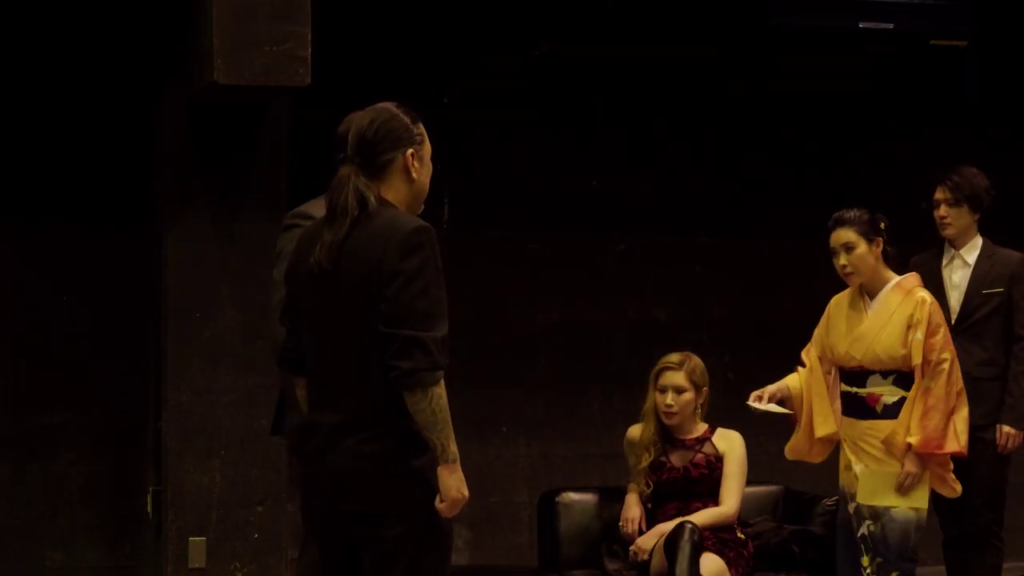
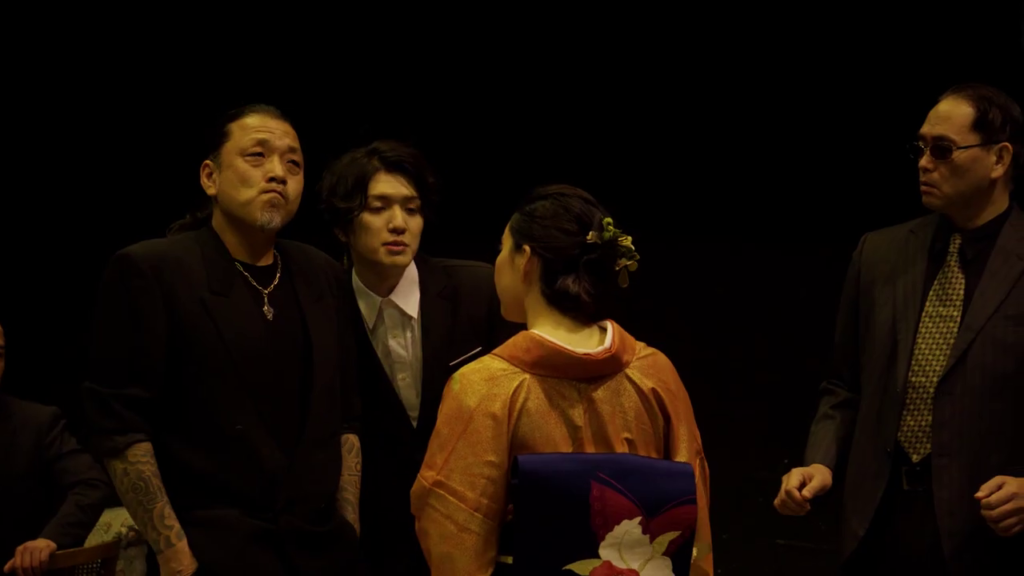
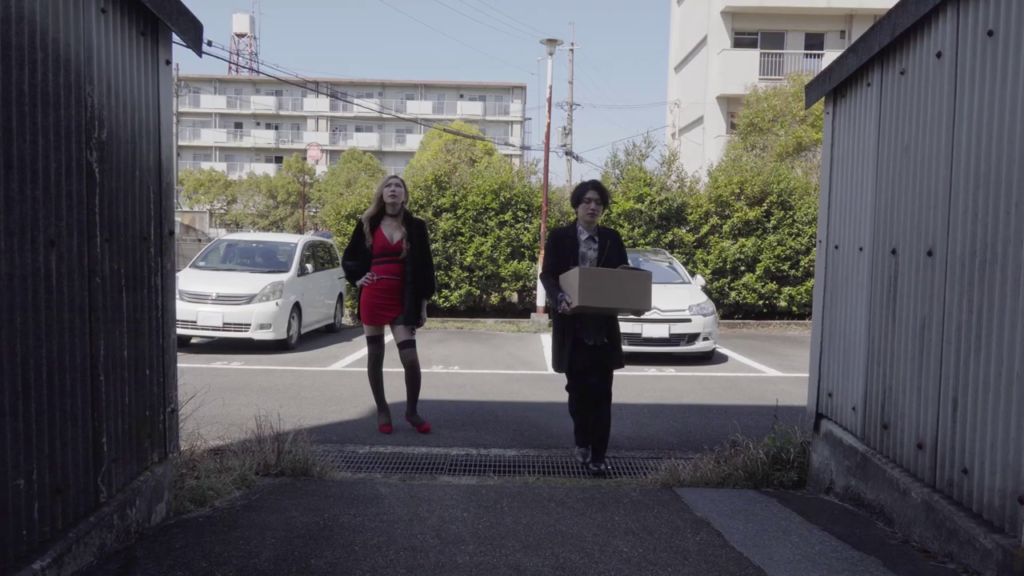

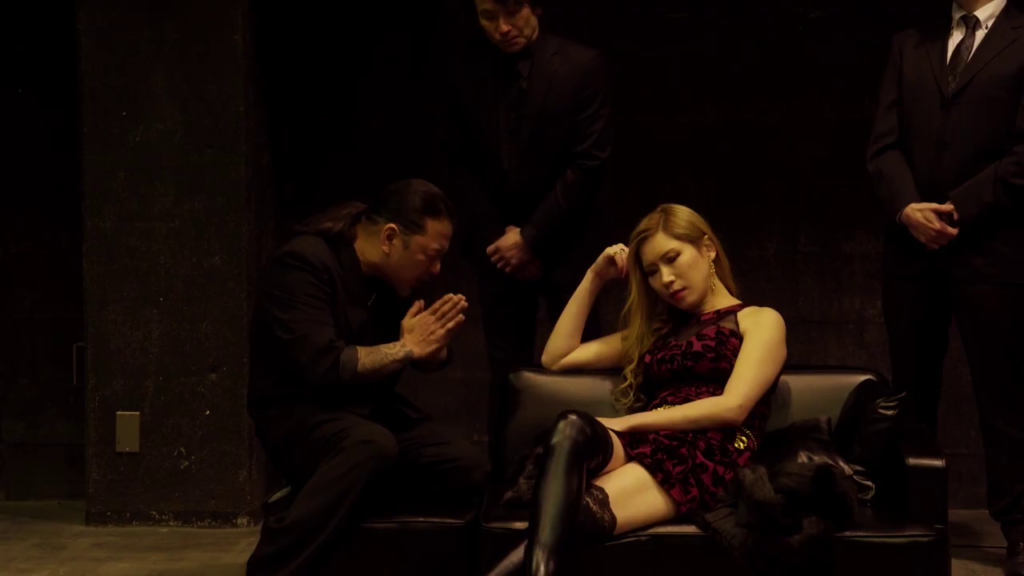
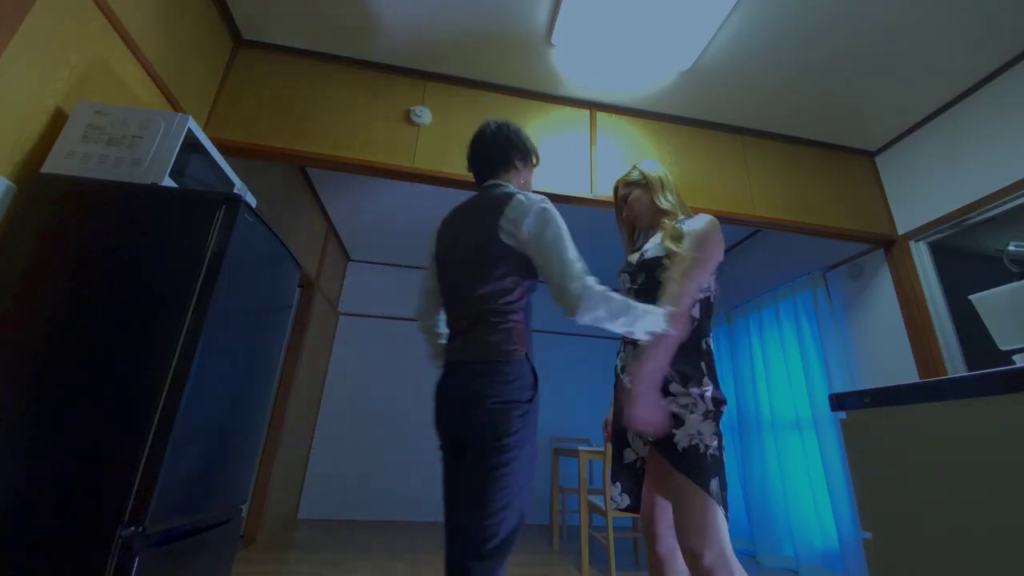
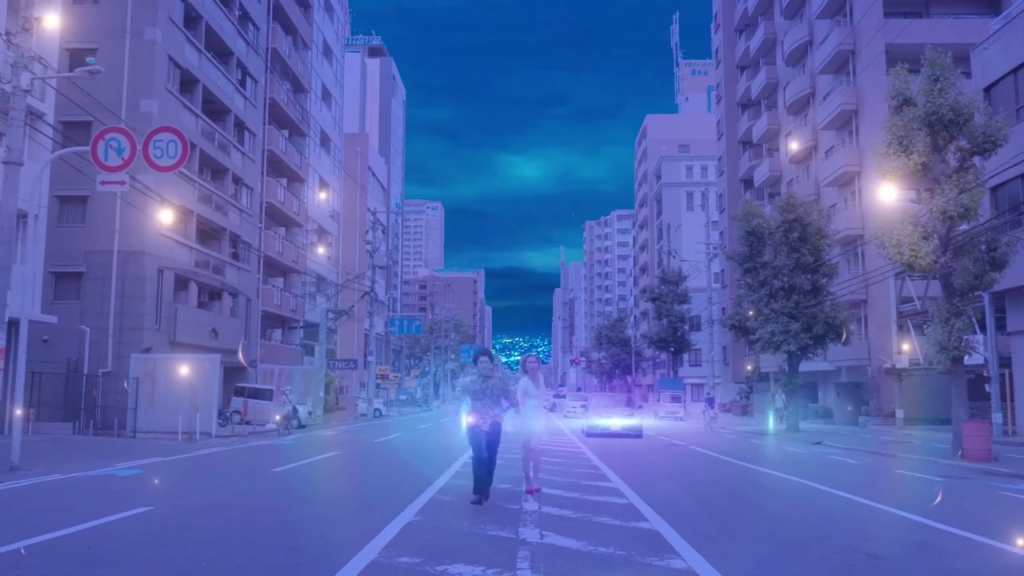

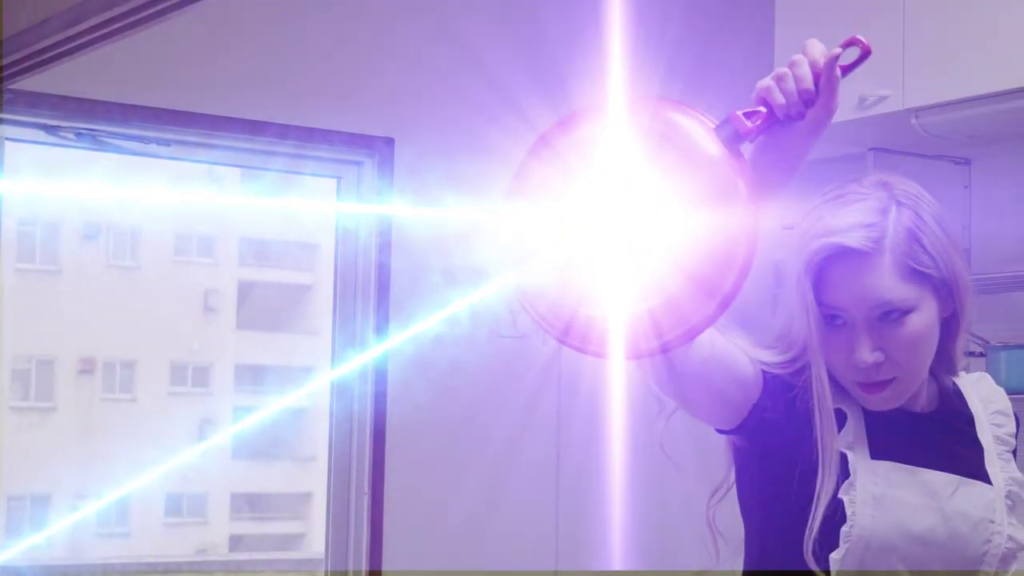
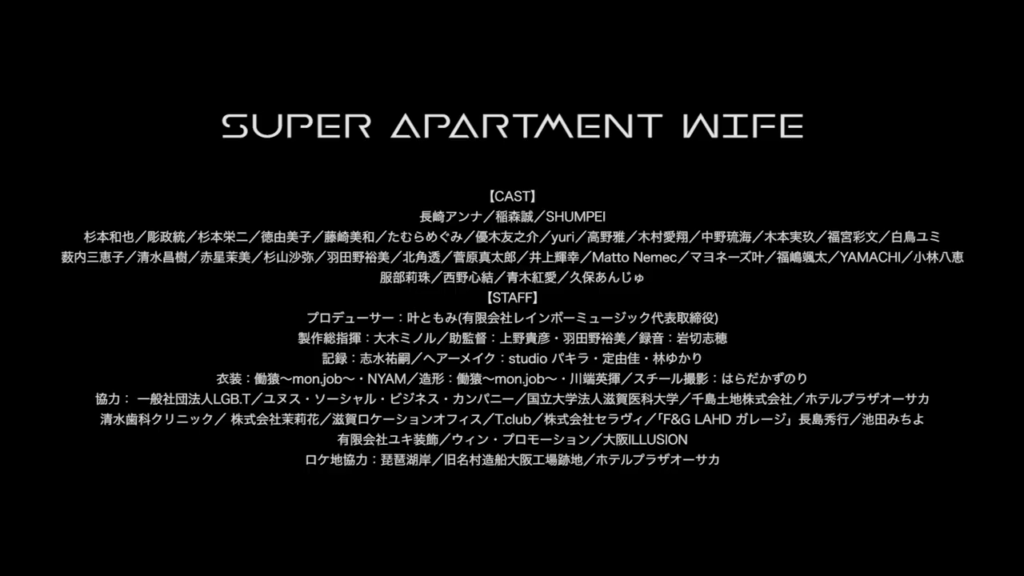
Super Apartment Wife (2021)
Film review #603
Director: Anna Nagasaki
SYNOPSIS: A yakuza boss needs to divert attention away from his mistress, Anna, as his wife is becoming increasingly suspicious of him. She is ordered to move in with newcomer Sho Nagasaki, and pretend to be his partner. However, the relationship becomes complicated when the yakuza boss has to engineer their “break up,” as well as the small matter of Anna being the daughter of an evil God who wants to wipe out humanity…
THOUGHTS/ANALYSIS: Super Apartment Wife is a 2021 sci-fi film. Starring, written, and directed by Anna Nagasaki, the plot concerns a yakuza boss who needs to hide his mistress from his suspicious wife. They plan for a newbie, Sho Nagasaki, to pretend to be her partner, and have her move in with him to try and fool the private detective the boss’s wife has hired. A simple enough plot, which I’m sure has the potential for some comedy or typical romance stuff, but there’s no real sense of what the film should be: I think it’s mostly meant to be taken seriously, but the stunted and sparse dialogue from the main characters makes it difficult to get to grips with what they are thinking. The whole film seems to have very little idea what it is doing, with Nagasaki never having written, directed, or starred in a film (her background is as an influencer). I think there’s a germ of an idea in here somewhere, but it fails to blossom in any way.
If you think the plot is already quite odd, then we haven’t even addressed the really weird stuff yet: it turns out that Anna is the daughter of “Darkness of Love” (it’s hard to translate the Japanese name), who is basically evil God, who wants to destroy humanity and replace them with more interesting species or something. Stranger still, it is implied this God (who looks like he belongs in The Matrix) is the Christian God, as he talks about creating Adam and Eve and whatnot. He visits Anna and reveals who he is, and tries to tempt her to embrace her evil powers and destroy humanity. We get there’s something special about her earlier because of these odd flashbacks of her Mother telling her not to get emotionally involved and accidentally unleash her demon powers or whatever, and there’s also this odd scene at a dentist as a flashback, which I can’t remotely fathom why it is in there or what it is meant to signify. So anyway, Anna eventually is consumed by her evil powers as she thinks Sho is seeing another woman, who is actually part of the yakuza boss’s plan to break up the couple so his wife doesn’t get suspicious, and this other woman is actually one of God’s other children, and maybe the yakuza boss’s wife is too? Honestly, I got completely lost at this point, as the film turns into this battle for the Earth at it’s climax, and everyone duking it out with God-like powers, and the yakuza trying to shoot them. The whole experience is just so surreal and chaotic I’m still at a lost of how to process it. Fortunately (?) the film does have a happy ending, as Anna and Sho have a kid and live happily ever after or something, but again, this just doesn’t really follow on from the madness that ensues at the climax; it’s just a bunch of half-cooked ideas thrown together with barely any structure to make them stick.
What makes this film feel truly amateur is the production and effects: a lot of the film looks like it was set on a stage at a local theatre, or an industrial estate just around the corner. The CGI is all very basic 3D models, and the greenscreen effects are clearly not done right, as they bleed into the actors constantly, The whole film (if this even counts as a film) is a half-baked mess of ideas, with zero chemistry between the characters to create any sense of romance or drama, and a bizarre angle concerning an evil God wanting to wipe out humanity that adds a completely different level of incomprehensibility. It clearly has no budget and a severe lack of expertise, so you can’t be too hard on the end product based on what it was working with, but there are some things which would have been easily improved. I can see what it’s trying to do, but every step it takes towards it is misplaced and ends up somewhere completely different. Probably worth a watch only if you really want to indulge in something completely insane and devoid of sense.
-
#602 – Geostorm (2017)
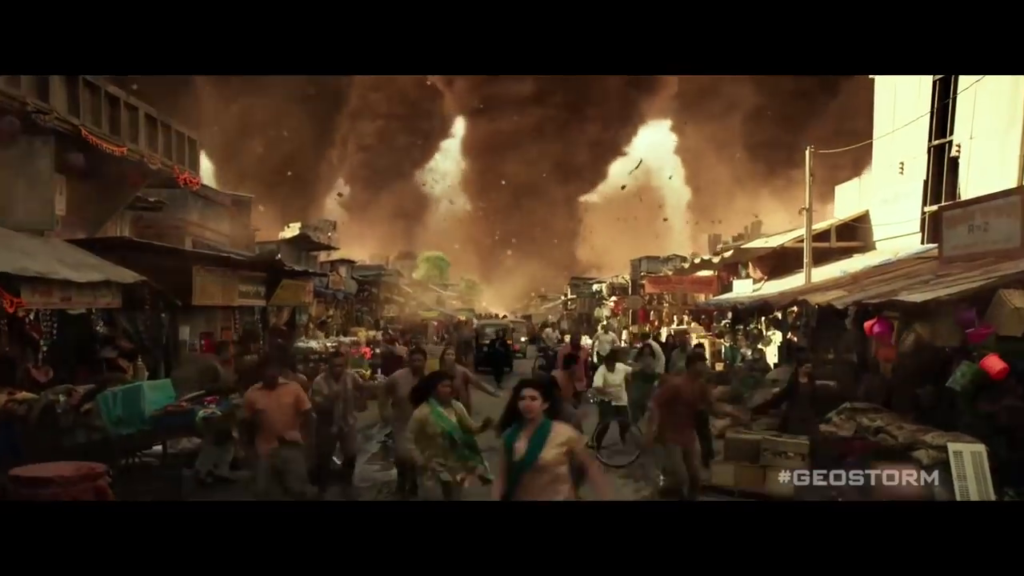
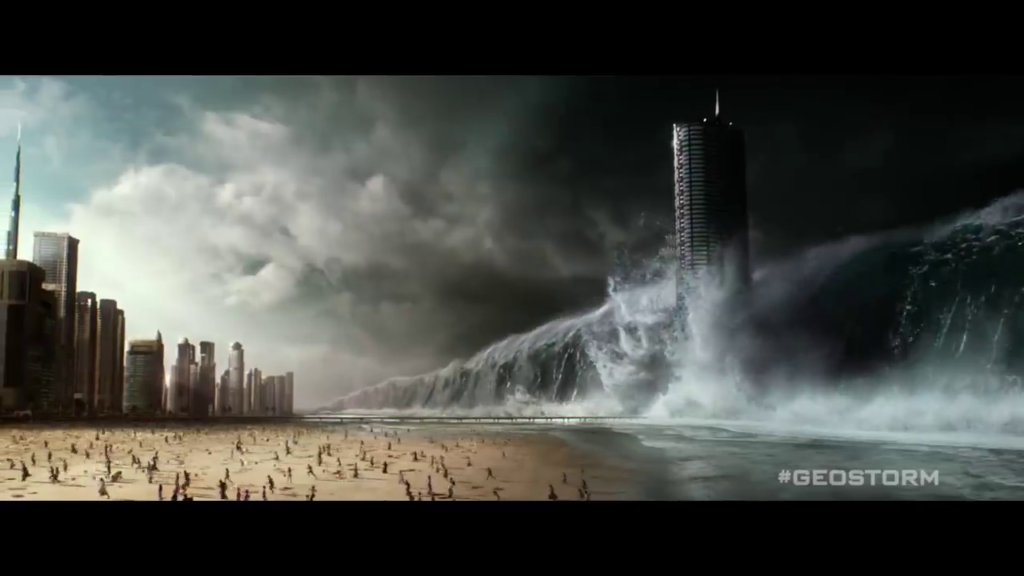
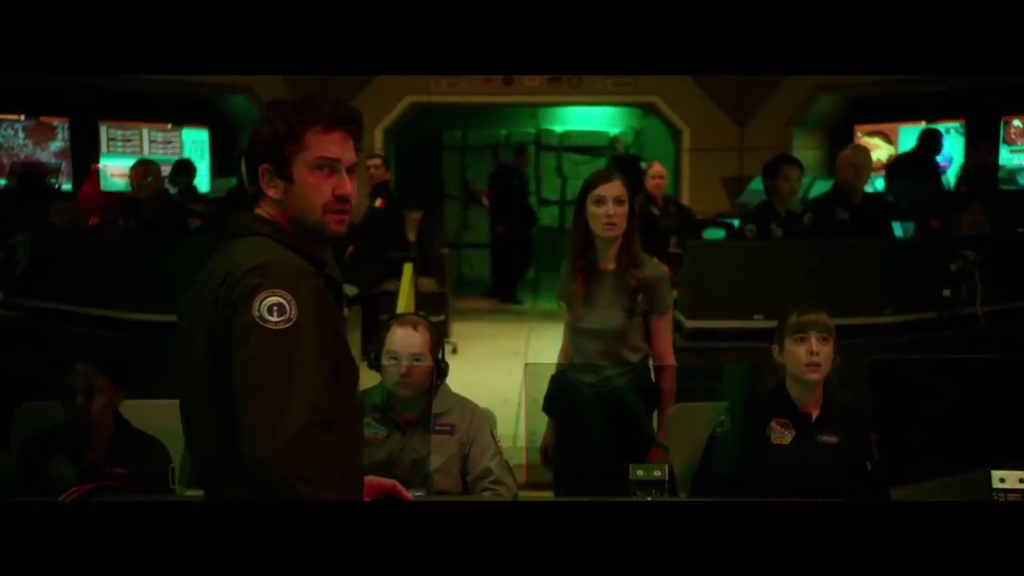
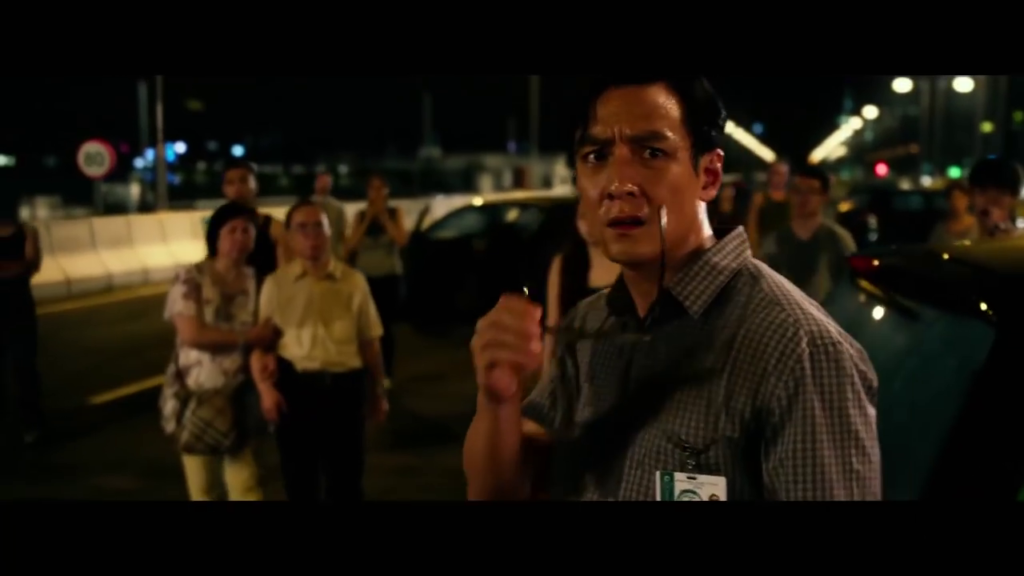
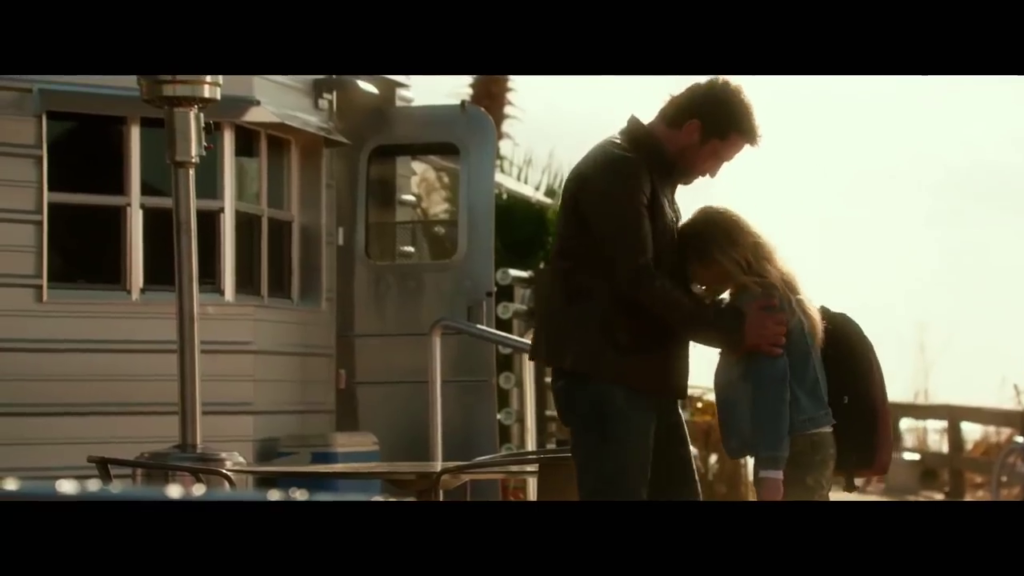
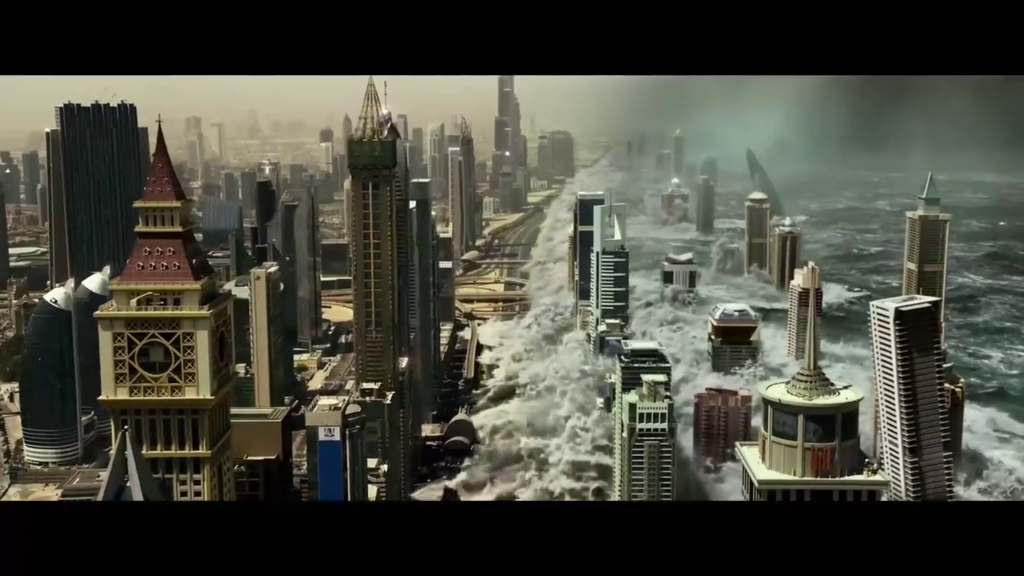
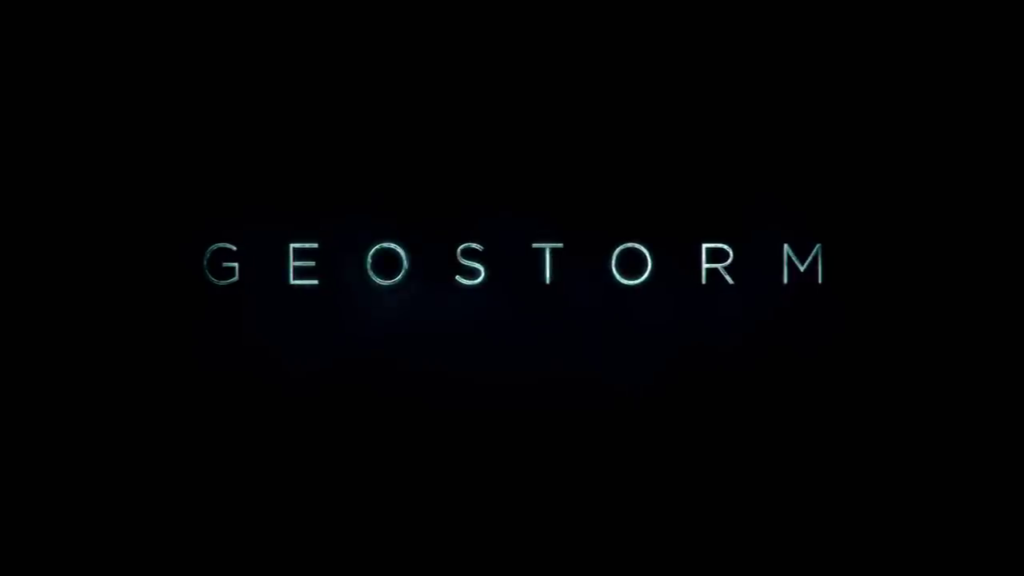
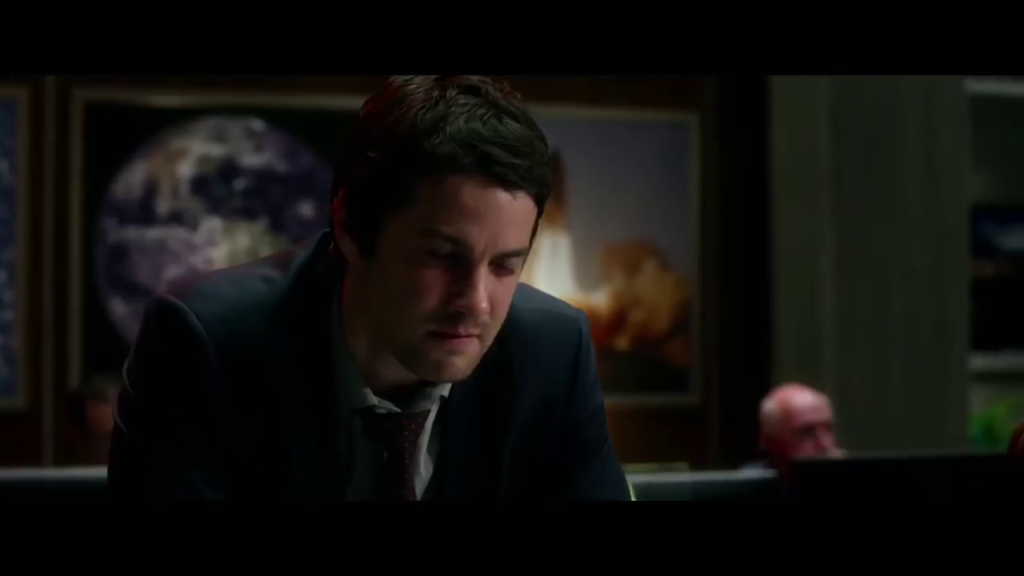
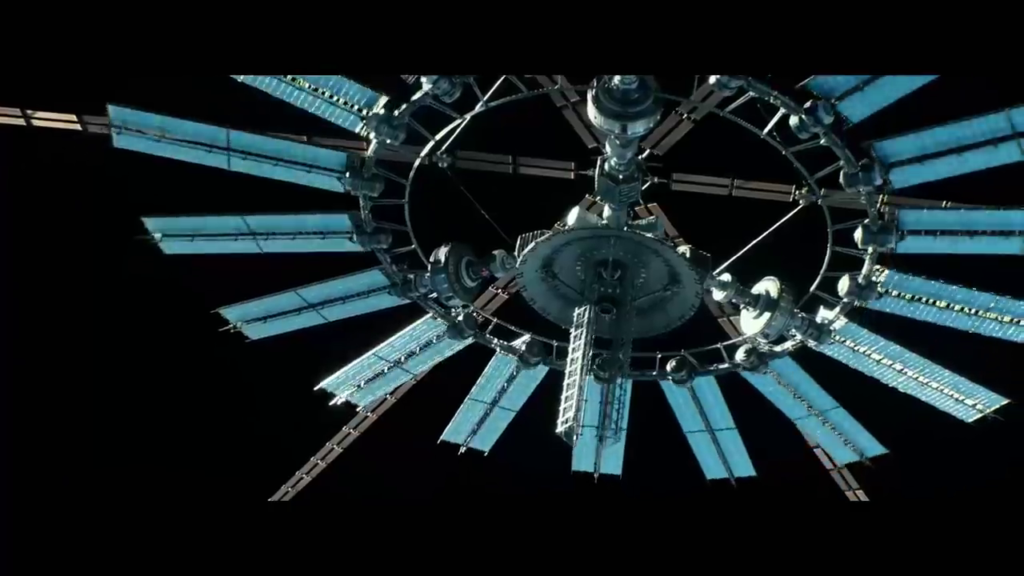
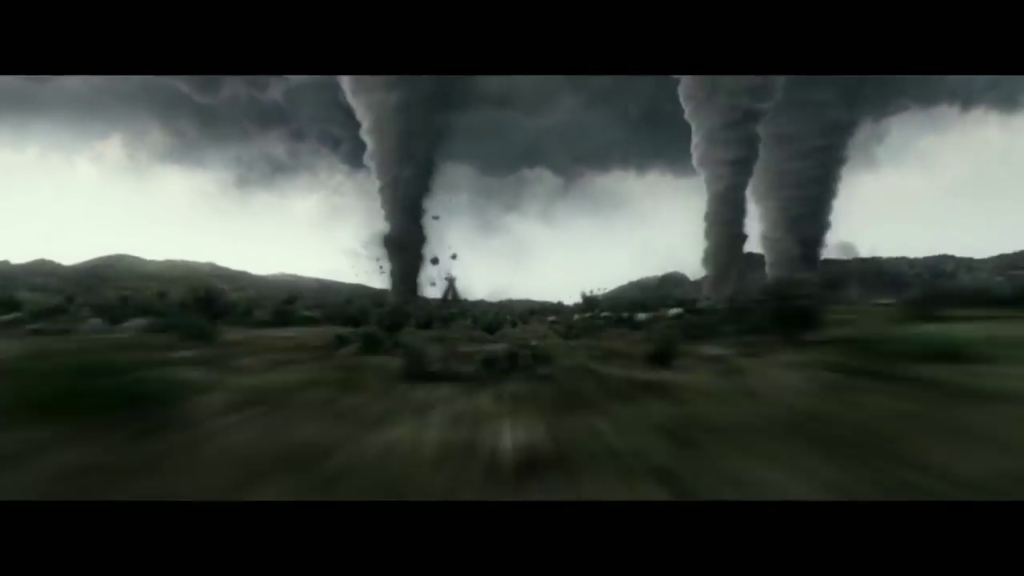
Geostorm (2017)
Film review #602
Director: Dean Devlin
SYNOPSIS: In the future, a global satellite network controls the Earth’s weather to prevent it from developing into extreme storms that would cause mass destruction. When the satellite starts to malfunction, the scientist who developed the system is called back to investigate and fix it, he finds that the malfunctions may actually be sabotage…
THOUGHTS/ANALYSIS: Geostorm is a 2017 sci-fi film. The film starts off with a narration that could probably have served as a film in itself: Earth is plagued by extreme storms that threaten mass destruction, and to counter this, scientists led by Jake Dawson develop a satellite network codenamed “Dutch Boy” to disperse these storms. Jake is removed from the project after he activates Dutch Boy without approval to disperse a storm over Shanghai. A year later, his brother, working for the U.S. government, persuades Jake to return to investigate a malfunction onboard Dutch Boy, which he suspects is sabotage, leading to a whodunnit scenario before more disaster. All of these elements are very formulaic, and offer no originality. Being primarily a disaster movie, the story is secondary in favour of the big destructive scenes of cities being laid to waste against the force of nature, but weak CGI dilutes this aspect too, leaving a film is very little going for it. There’s a little bit of mystery, disaster, and drama, but nothing is developed strongly enough to serve as the film’s backbone, thus leaving a bit of disconnected mess.
Despite all this, it’s certainly not an unwatchable film: it’s entertaining enough, as long as long as you don’t over think it. Character development is sorely lacking, so you’re never really getting a sense of peril for the situations they are in. The overarching mystery does try and lead you astray, but the actual solution isn’t really all that exciting to present that much of a twist. It’s a bad film, mired by poor effects and an obvious inexperience on the part of Dean Devlin in his directorial debut, but it’s non-offensive, and you can sit through it if you switch off your sense of reason off for an hour and forty minutes.
-
#601 – The Penitent Man (2010)
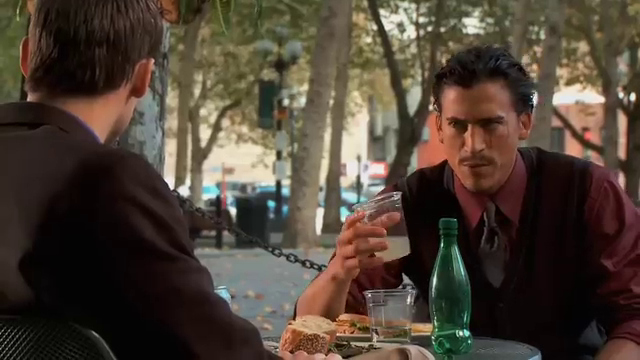
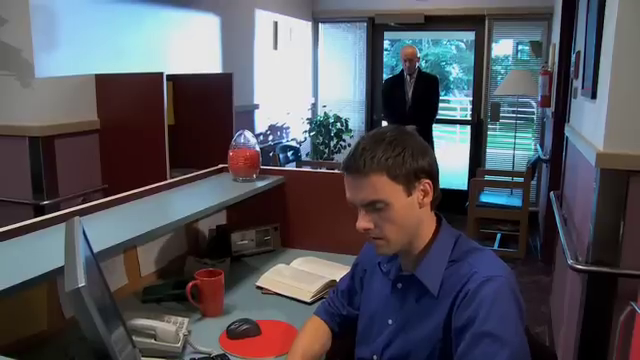
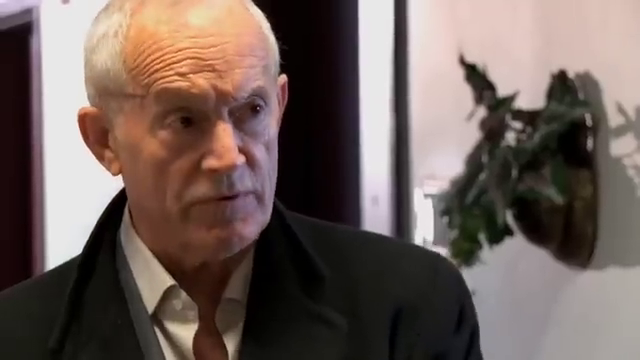
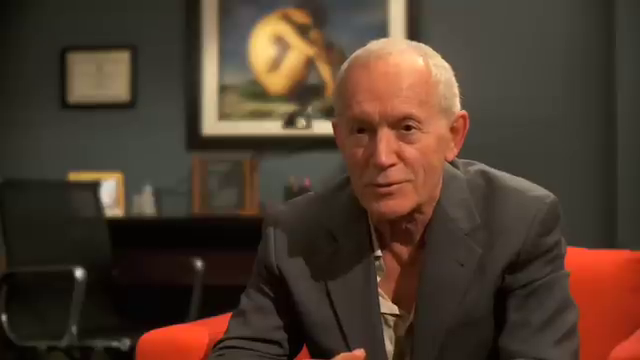

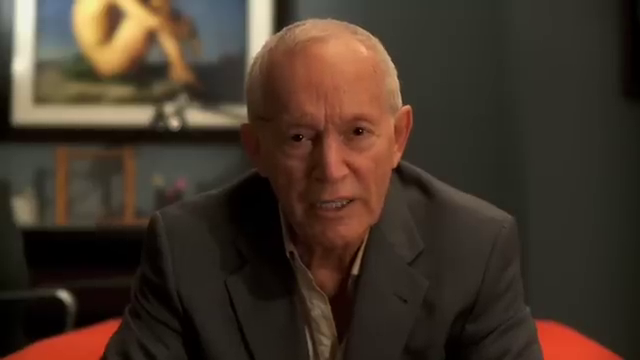
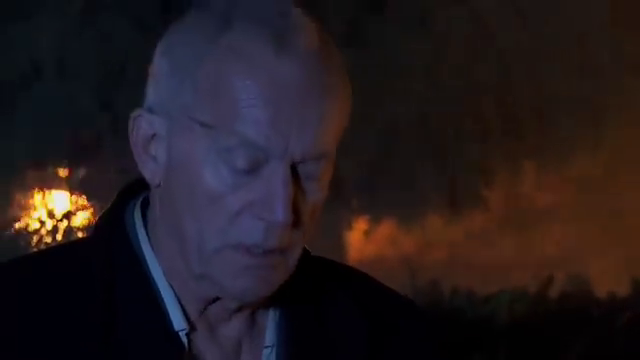
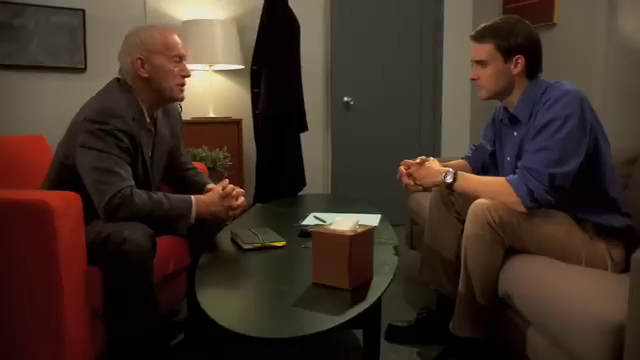

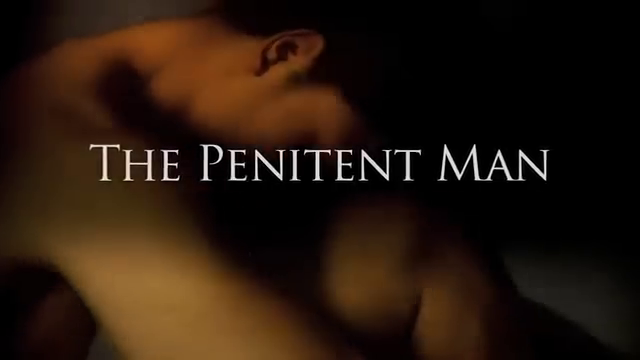
The Penitent Man (2010)
Film review #601
Director: Nicholas Gyeney
SYNOPSIS: A psychologist with troubles with his finances and marriage is visited by a long term patient who makes a startling claim – he is from the future, and he has travelled back to prevent the discovery he made from ever being used, as it brought about the destruction of society as we know it…
THOUGHTS/ANALYSIS: The Penitent Man is a 2011 film. Psychologist Dr. Jason Pyatt is visited by a patient, Mr. Darnell, who he has been sporadically over the past year. He confides in the doctor a secret: that he is from the future, where an invention he made to look through time has caused the collapse of society, and he has travelled back to prevent his discovery from being made. The film is essentially a drama film, with the two main characters sitting and talking, followed by two other characters sitting talking…essentially, there is a lot of dialogue in this film. You may be constantly waiting for something to happen, but nothing ever does. If the dialogue was captivating or explored ideas or concepts with some depth, it would be interesting, but it barely scrapes the surface of its ideas; instead just leaving things as generalities. The fact that nothing is really shown could generate an interesting sense of ambiguity about whether the man is telling the truth, but in the opening scene we see him in the future and time travel, so it just eliminates that avenue for the film to build on.
The whole film feels very amateur-ish, making it feel like someone saw The Room and took it as a “how-to” for filmmaking. The aforementioned scenes of flat dialogue don’t really develop the characters or story, and there’s a severe lack of purpose or direction. The film is also extremely heavy-handed with it’s imagery, and is obsessed with close-ups. For example, the beginning is filled with close-ups of wedding rings on the characters fingers and other paraphernalia to establish them, but it just doesn’t seem really necessary. Another issue is that the plot is entirely predictable, and unfolds exactly as you think it will: you’ll easily guess who Mr. Darnell really is, and who his friend was who tried to stop him. Again, there’s a heavy-handedness and inexperience that destroys any sense of tension or subtlety.
Lance Henriksen as Mr Darnell is the only real good actor in this film, but even then, he feels misdirected, and working with a poor script. his scenes with Dr Pyatt (Lathrop Walker) feel so uneven because of the chasm of talent between them. Scenes between other characters are completely devoid of interest, and no one seems to know what to do with the camera during these long scenes, and it sometimes just focuses on a character who is being spoken to, which is very odd. It’s easy to sum up this film as a very amateur and misguided attempt at being a smart film: the acting is dire, the camerawork lacks direction, the plot is predictable, the imagery is heavy-handed, and again, it really feels like someone took The Room as a guide for how to make films. There’s nothing really redeemable about the film, or anything interesting to take away from it, as it’s dull characters and completely predictable plot just leave you waiting for the film to end.
-
#600 – In Time (2011)
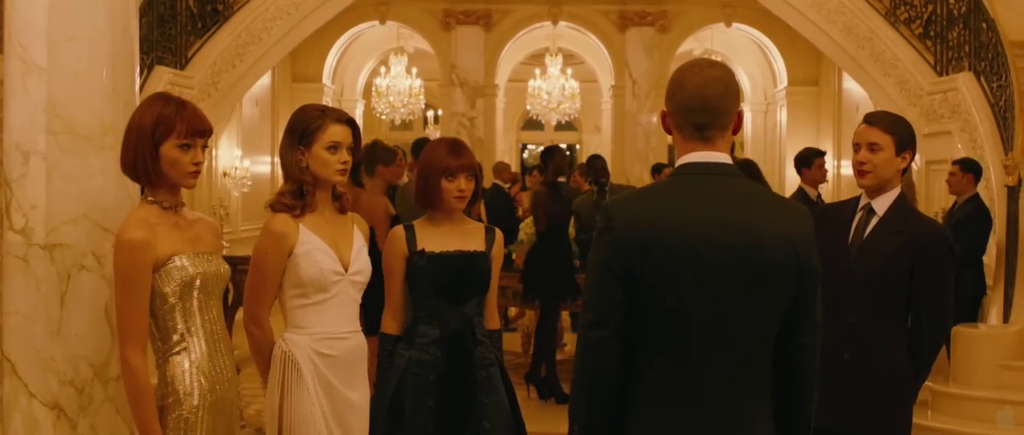
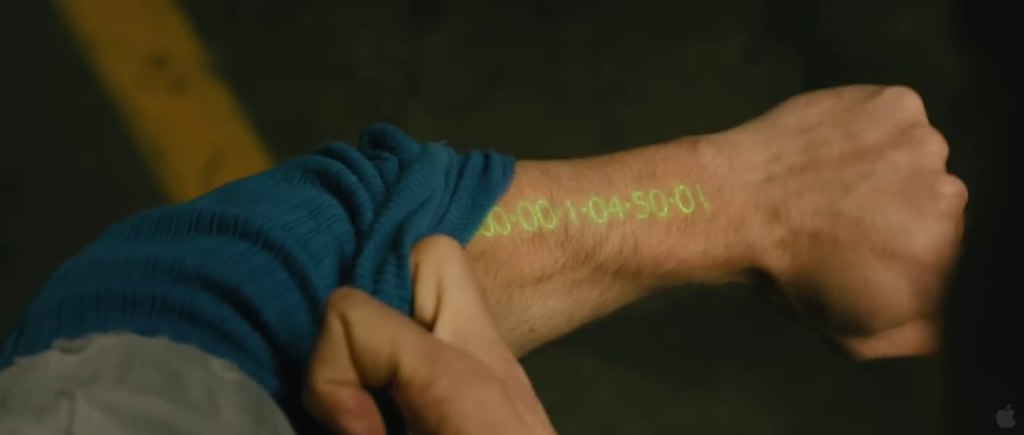

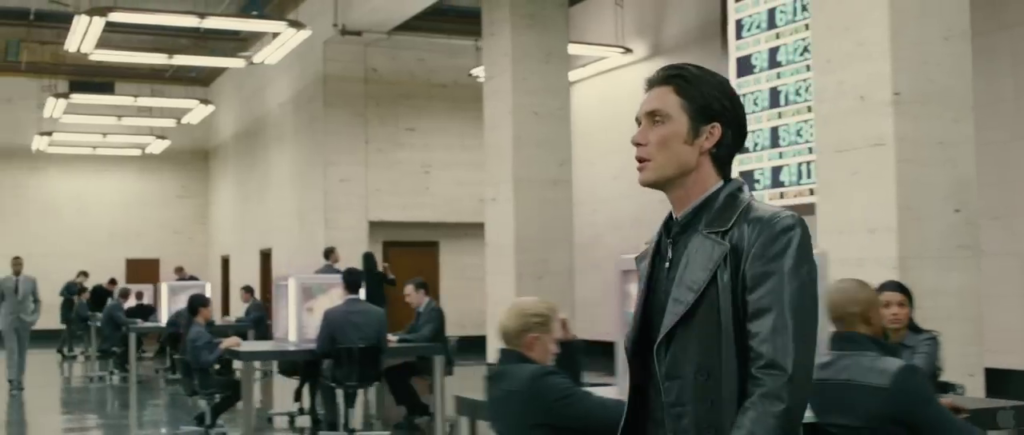
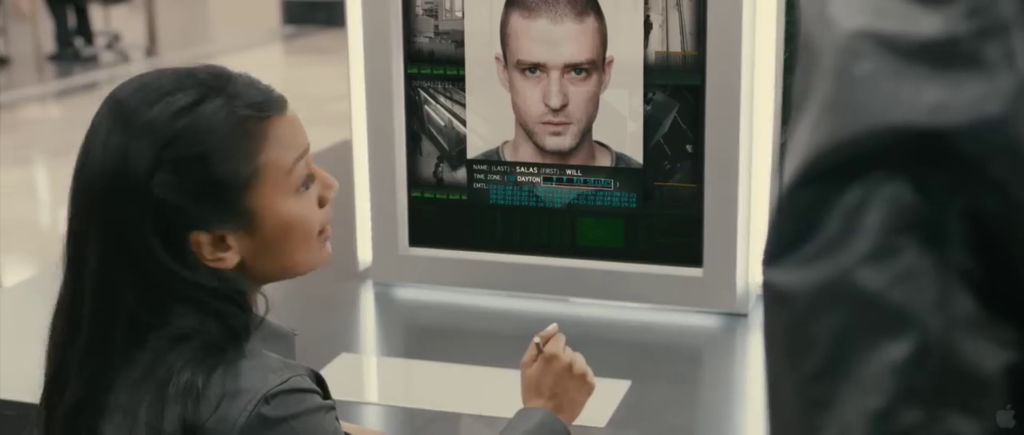
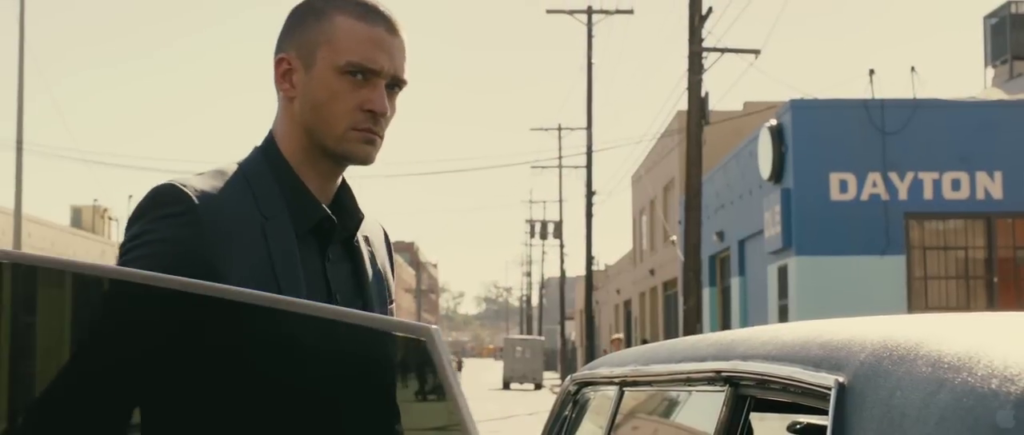
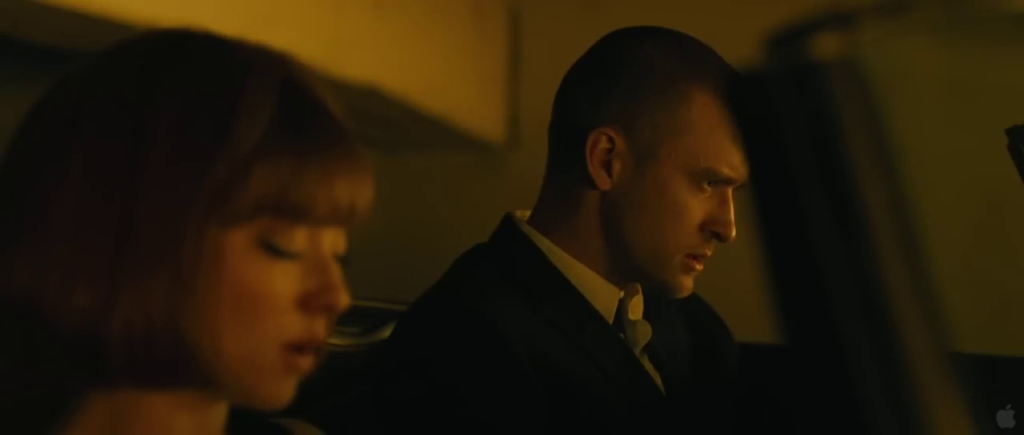
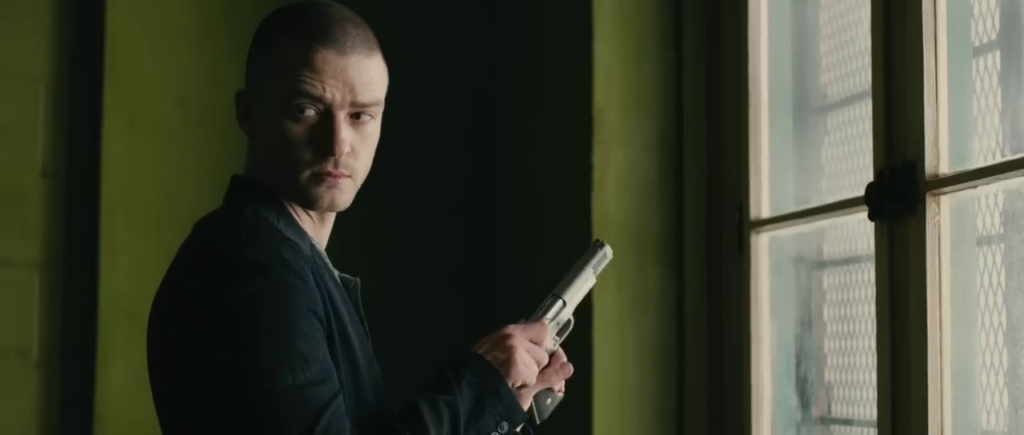
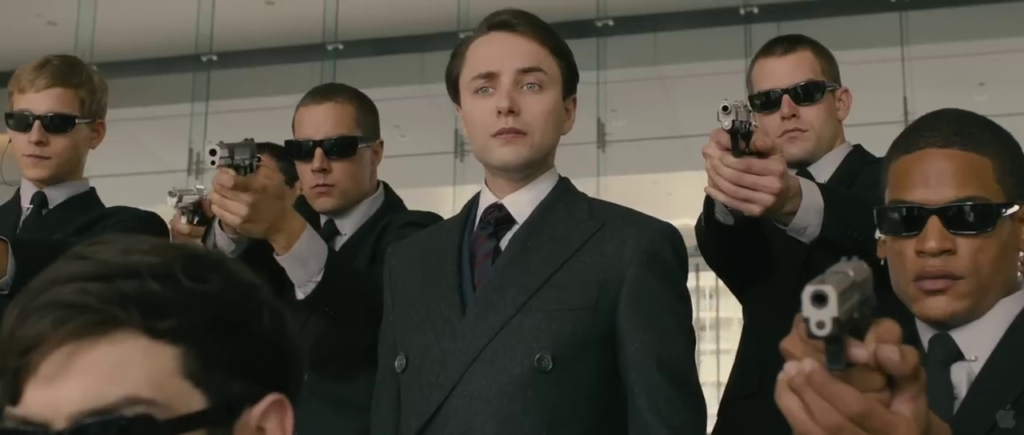
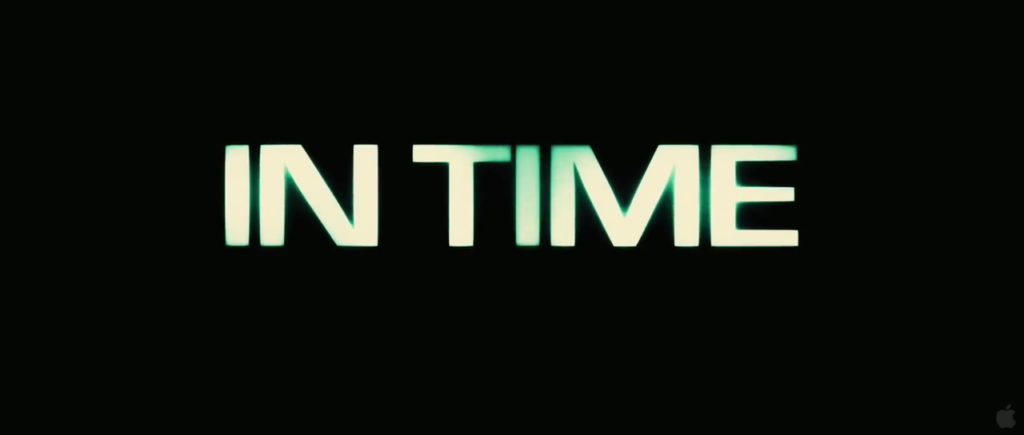
In Time (2011)
Film review #600
Director: Andrew Niccol
SYNOPSIS: In the future, time is the only currency: people stop aging at the age of twenty five, and after, must work to earn time on their lives, as well as using time to pay for everything else. Will Salas works in the ghetto, earning just enough to live day-to-day, when he meets a man at a bar who has over a century left on his life. The man, who has apparently been living over a hundred years, has grown tiring of living, and transfers all his remaining time to Will. Faring that having so much time could upset the balance of the economy, Will becomes hunted by Timekeepers whose job it is to restore order, while Will decides to use his new found time to fleece the system for everything it has…
THOUGHTS/ANALYSIS: In Time is a 2011 sci-fi film. Set in the future of 2169, time has become the only currency, where people stop aging at 25, and must get extra time on their lives by working for it, but also must pay for everything with that same time as well. It’s a fairly interesting set-up, although I don’t think overly novel. The downfall of the film is that it in no way explores the concept it leads with. At the start, we get a scene between main character Will Salas and who we are lead to believe is his wife, but turns out to be in fact his Mother, because everyone stops aging at the age of twenty-five, you would have no idea how old someone was. This seems like some thing that has potential to be explored, but it barely gets a mention. Another big part of the film is the portrayal of the gap between those who have to earn time day-by-day to keep from dropping dead, and those who have hundreds of years on their clock so they can practically live forever, thus creating a dystopia of inequality. The trouble here is, this doesn’t really seem any different than the systems of inequality we have today. Obviously science-fiction works best when it serves as a reflection of contemporary society in some way, but because the film’s concept is not developed or intertwined more closely with the core story, it becomes fairly irrelevant. We are often told about this system of inequality, and how people in the ghetto are fighting to survive, but every scene there is fairly calm and quiet, whereas you would expect people to be constantly fighting each other for seconds or minutes, particularly if they were at the end of their time. Therein lies the problem: the film tells you about the world, but what is shown rarely matches up to that, thus the film really tries to force feed it’s world to you, rather than letting viewers immerse themselves in it to explore for themselves. There’s also the fact that the future is hardly any different than our present, save for the time-based currency: all the cars, buildings etc. are things you would find in any city, and again, you’re just not immersed in this setting.
The plot proper concerns Will Salas (Justin Timberlake), a worker in the ghetto who meets a man from the rich zone with over a hundred years on his clock, who has grown tired of living after over a century. He gives Will all his time while he is sleeping, leaving just enough to throw himself of a bridge when it runs out. When Will’s mum dies as well from running out of time, Will decides to use his newfound time to take everything from the rich. It’s a bit of a leap from Will just trying to survive to becoming a revolutionary, as we aren’t really given any idea about his backstory or anything, and it feels like there’s a bit of a gap between suffering a loss to deciding to tear down the whole system. Will buys his way into the rich zone, and with the help of Sylvia Weis (Amanda Seyfried), the daughter of a rich banker whom Will initially kidnaps, the two embark on a Bonnie and Clyde style set of raids and robberies to distribute time from the elite to the people of the ghetto, disrupting the time-base economy, all the while being pursued by the timekeepers, who enforce the system. Given that the aim given in the film is for Will to bring down the whole system, the film instead just focuses on a constant chase between Will and authorities, never advancing the story in any significant way. In fact, the end of the film just states that they can’t up-end the system, and seemingly ends with the pair on their way to rob another time bank and just do what the film already showed ad infinitum. There’s also a small plot point that hints about Will’s Dad being killed for doing the same thing that he is doing, but this is mentioned off-hand once or twice and never becomes relevant to anything, which makes you wonder why it is mentioned at all.
Overall, In Time offers an interesting set-up, but ultimately fails to do anything with it. We are left with a world very similar to our own, and one that is too similar and thus unengaging, as the film constantly avoids developing it with any detail, or exploring any implications from its core concept. The characters are fairly bland, and Justin Timberlake’s performance hasn’t improved since his role in the sci-fi film Southland Tales, which had the same problems there. Unresolved plotlines, a lack of direction, and an absence of depth leave the viewer with a film that’s simple enough to follow and a bit of style, but wholly lacking in substance and direction.

